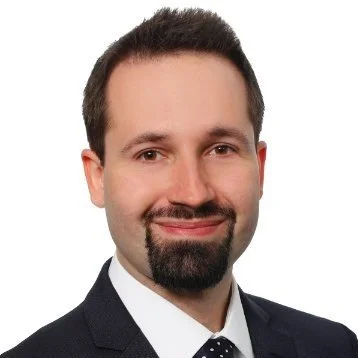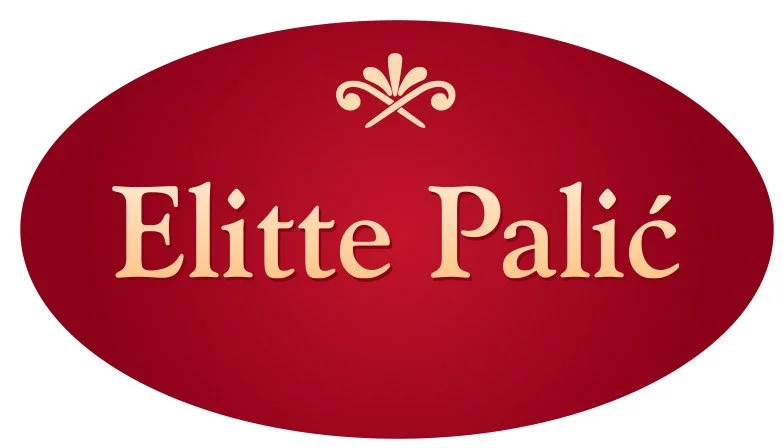3rd Annual Meeting of Balkan Association for Vector-Borne Diseases
One region, one purpose — protecting health together.
The BAVBD Symposium brings physicians, microbiologists, epidemiologists, and veterinarians together to learn, share, and build trust across disciplines and borders.
Event date:
November 29, 2025
Location:
Vermaš Hall
Park Heroja 15, Palić, Serbia
Welcome letter
Esteemed colleagues and distinguished guests,
It is with great joy that we invite you to join us at the BAVBD Symposium on Vector-Borne Diseases and Regional Biosafety Collaboration, which will take place on 29 November 2025 in Palić, Serbia.
This gathering is not only an opportunity to learn, but also a moment to reconnect — to share experiences, stories, and ideas that bridge our laboratories, clinics, and communities across the region.
Our aim is simple: to strengthen understanding, compassion, and collaboration among those who dedicate their work to protecting human and animal health. Through open dialogue and shared learning, we hope to create new friendships and renew our common commitment to science that serves people.
We look forward to welcoming each of you — to sit together, learn together, and inspire one another.
May this symposium be a reminder that progress always begins with connection.
Dr. Dejan Jakimovski
Clinic for Infectious diseases Skopje, North Macedonia
President of BAVBD
Dr. Pavle Banović
Pasteur Institute Novi Sad
Local Organizer
Organization Board:
Dr. Gabor Kemenesi (National Laboratory of Virology, University of Pécs)
Dr. Pavle Banović (Pasteur Institute Novi Sad)
Dr. Dejan Jakimovski (University Clinic for Infectious Diseases and Febrile conditions, Skopje)
Dr. Iva Christova (National Center of Infectious and Parasitic Diseases, Sofia)
Dr. Lidija Popović-Dragonjić (Clinic for Infectology, University Clinical Center Niš)
Dr. Eleftherios Meletis (Laboratory of Epidemiology, Biostatistics & Artificial Intelligence, Faculty of Public and One Health, University of Thessaly)
Scientific Board:
Dr. Eleftherios Meletis (Epidemiology and Biostatistics)
Dr. Dejan Jakimovski (Clinical medicine)
Dr. Pavle Banović (Diagnostics and Laboratory research)
Morning session lecturers
-

Franc Strle
University Medical Centre
Ljubljana
Slovenia
-

James Jason Valdés
Mikrobiologický ústav AV ČR, v.v.i., Třeboň
Czech Republic
-
Alejandro Cabezas Cruz
UMR BIPAR
(INRAE, Anses, EnvA)
Maisons Alfort
France
-

Tatjana Roganović
Clinic for Infectious Diseases
UKC Republike Srpske
Banja Luka, Bosnia i Hercegovina
-

Biljana Popovska Jovičić
Clinic for Infectious Diseases
UKC Kragujevac
Serbia
-

Dejan Jakimovski
University clinic for Infectious Diseases & Febrile Conditions – Skopje
North Macedonia
-

Igor Pajović
Biotechnical faculty
University of Montenegro, Podgorica
Montenegro
-

Pavle Banović
Pasteur Institute Novi Sad
Novi Sad Serbia
-

Lidija Popović Dragonjić
Clinic for Infectious Diseases,
UKC Niš
Serbia
-
Kemenesi Gabor
National Laboratory of Virology
Szentágothai Research Center University of Pécs,
Pécs, Hungary
-
Jasmina Poluga
Clinic for Infectious and Tropical Diseases University Clinical Center of Serbia
Faculty of Medicine, University of Belgrade, Serbia
-

Andrija Jović
Clinic for Dermatology
University clinical of Niš
Niš, Serbia
-

Natasha Griffith
SOTER Bio Consulting, LLC
Atlanta, Georgia, USA
-
Andreas Pilz
Global Vaccines and Anti‑Infectives Medical Affairs, Pfizer Corporation Austria
Vienna, Austria
Afternoon workshops
From Outbreak to Response: Building Biosafety and Biosecurity Capacity
-
Somogyi Balázs Antal, BSL4 manager
University of Pecs
Pecs, Hungary
and
Tatyana Novossiolova
Center for the Study of Democracy
Bulgaria
-
Upon completion of the program, participants will be able to:
• apply the basic principles of biosafety and biosecurity in their work environment;
• conduct a biorisk assessment and define appropriate control measures;
• participate effectively in an intersectoral response to biosecurity incidents;
• communicate risks in a clear and structured manner during crisis situations;
• contribute to the planning and development of regional training and cooperation programs in the field of biosecurity.
-
50
Clinical case series: Challenges in diagnosis and treatment of Vector‑borne diseases in the Balkans
-
Dejan Jakimovski, Infectious diseases specialist
University Clinic for Infectious Diseases and Febrile Conditions
Skopje, North Macedonia
-
By the end of the workshop, participants will be able to:
Recognize early clinical features of key VBDs relevant to the Balkans.
Apply rational diagnostic algorithms for suspected VBDs.
Interpret serological and molecular results in context.
Discuss treatment priorities and biosafety measures.
Understand the One-Health connections between human and animal surveillance.
-
20
Hands‑On Biostatistics & Early Warning for Outbreaks — From Clinics and Schools to One‑Health Surveillance
-
Eleftherios Meletis, epidemiologist
Faculty of Public and One Health
University of Thessaly
Karditsa, Greece
-
This workshop, as part of the annual meeting of the Balkan Association for Vector Borne diseases, and in line with the Association’s Task Force of Epidemiology and Biostatistics, introduces simple, interpretable early-warning tools that clinicians, public health practitioners can use to anticipate epidemic waves and trigger proportionate responses.
Using real examples from application of early-warning tools participants will practice reading model outputs and translating signals into actions in clinical and public-health settings.
Evidence from applications in published literature will guide the exercises and discussion.
-
20
Registration is closed!
Symposium Program
All times local.
08:30 Opening ceremonySession 1: Practical Challenges in Managing Tick‑Borne Infections Across the Balkans
Session 2: Transforming Vector‑Borne Disease Management — From Microbiota Vaccines to Biosecurity
14:30–17:00 — Workshops & Case Series (Parallel Sessions)
How to reach Palić?
By Air
Palić does not have its own airport. The closest major airports are:
Belgrade Nikola Tesla Airport (BEG) — ~182 km away
Budapest Ferenc Liszt International Airport (BUD) — ~193 km away
Osijek Airport (Croatia) — ~139 km away
Timișoara Airport (Romania) — ~200 km away
From any of these, you’ll need to continue by land (car, bus, train, taxi).
By Car / Private Transfer
From Belgrade: (Driving time from Belgrade is about 1 hour 35 minutes (≈ 174 km) via the highway route. )
Take highway E‑75 heading north toward Novi Sad / Subotica.
Use the exit “Subotica — North” to go west toward Palić.
Continue on regional roads following signs to Palić.
If coming from Hungary, Croatia, or Romania, approach via the E‑75 or regional border crossings:
From Hungary: use border crossing Horgoš (on E‑75) or Kelebija (for passenger traffic).
From Croatia (Osijek direction): take road M‑17 toward Sombor, then onward via regional roads.
By Public Transport (Bus / Train + Local Transport)
Belgrade → Palić
From Belgrade (e.g. the main bus station, “Beograd – Botanička bašta”), you can catch a bus to Palić (or via Subotica).
Alternatively, take a bus from Belgrade → Subotica, then transfer to a local bus or taxi from Subotica to Palić.
The entire trip often takes ~4 hours including transfers.
Subotica → Palić (final leg)
From Subotica’s main bus station, take a local bus (Line 6 or other local lines) toward Palić.
This journey is short (about 20–30 minutes).
You can also take a taxi or local transport from Subotica to Palić.
Additionally, there is a train connection to Subotica (Serbian Railways), but you still need onward transport to Palić from Subotica.
























